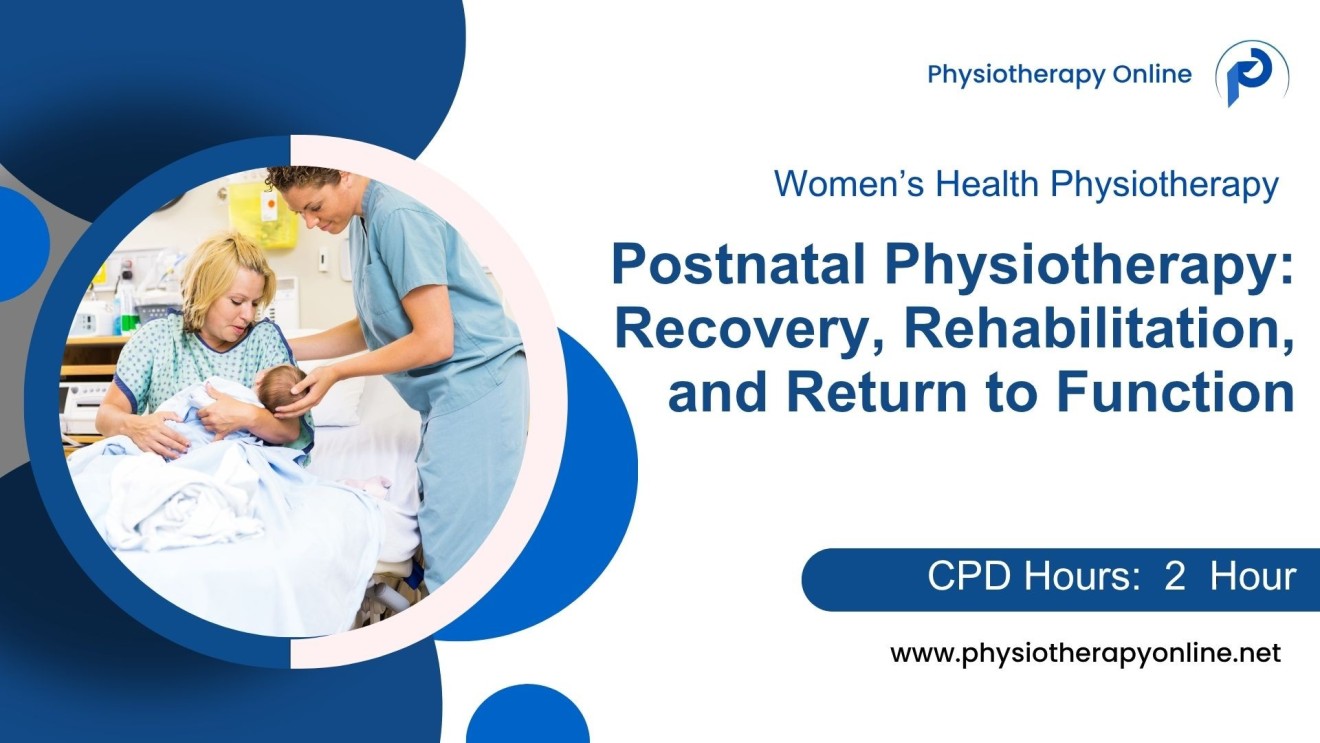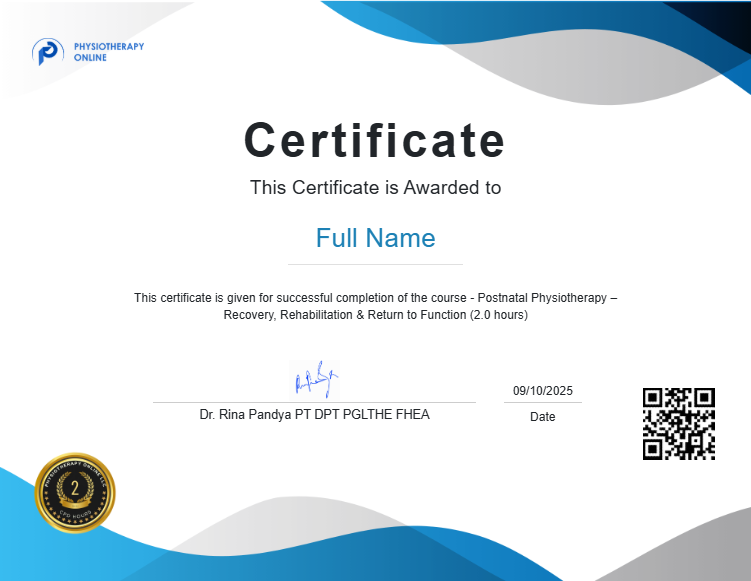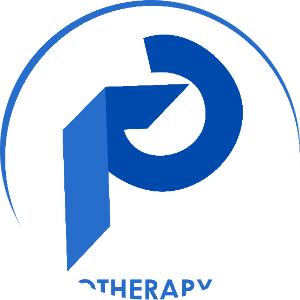About Course
The postnatal period involves recovery from pregnancy and birth, with increased risk of pelvic floor dysfunction, musculoskeletal pain, and fatigue. This 2-hour CPD webinar provides physiotherapists and allied professionals with practical tools to assess and manage postnatal conditions. Topics include scar care, core rehabilitation, sexual health, and return to sport. Emphasis is placed on individualized care, pacing, and MDT collaboration.
Learning Objectives
Participants will be able to:
- Screen for postnatal pelvic floor and MSK dysfunction
- Apply validated tools (PFIQ-7, FSFI, PGQ, EPDS)
- Prescribe core and pelvic floor rehab programs
- Educate on ergonomics, pacing, and sexual health
- Refer appropriately for complex or persistent symptoms
Target Audience
- Physiotherapists (PT)
- Midwives
- Physiotherapy Assistants (PTA)
- Occupational Therapists (OT)
- Mental Health Practitioners
Duration: 2hrs
30 Days of Access to Learning Materials
Course Outcomes
Participants will:
- Understand postnatal healing timelines and risk factors
- Assess pelvic floor, DRAM, and postural dysfunction
- Deliver evidence-based rehab for core, pelvic floor, and sexual health
- Educate on pacing, sleep hygiene, and ergonomic strategies
- Collaborate within MDT for holistic recovery
Supporting Resources
- PFIQ-7, FSFI, PGQ, EPDS templates
- Sample postnatal rehab programs
- Visual aids for scar massage and posture
- Access to course recording for 60 days
- Certificate of Completion (2 CPD hours)
Accreditation & Alignment
Aligned with:
- NICE NG194
- POGP Postnatal Guidelines
- WHO Postnatal Care Framework
- NHS England PPHS Implementation Guidance
Course Presenter
Gehan Baalawi, BSc (Hons) Physiotherapy, Dip. Health & Social Care
Gehan Baalawi is a conscientious and forward-looking physiotherapist known for her evidence-based approach and emerging expertise in geriatric care. She holds a Bachelor of Science (Hons) in Physiotherapy from the University of the West of England (UWE),Bristol, and a Diploma in Health & Social Care from SGS College—credentials that underscore her dedication to delivering holistic, person-centred care.
Her recent academic research explored the effects of deep slow breathing (DSB) versus spontaneous breathing on pressure pain thresholds in asymptomatic adults, measured using algometry on the tibialis anterior muscle. This work reflects her keen interest in non-invasive interventions that promote physiological resilience and pain modulation.
Clinically and academically, Gehan is invested in the use of validated screening tools, comprehensive assessment strategies, and integrated, multi-component interventions to support positive patient outcomes. She is deeply committed to empowering healthcare professionals by translating current research into practical, impactful physiotherapy education.
Complementing her clinical expertise, Gehan has completed additional training in Mental Health Care Fundamentals, Leadership Skills, and Well-Being and Self-Care—reinforcing her commitment to safe, inclusive, and compassionate practice. She is a registered member of both the Health and Care Professions Council (HCPC) and the Chartered Society of Physiotherapy (CSP) in England.
Disclaimer: Our online physiotherapy CPD courses meet the criteria and guidelines for CPD (Continuing Professional Development). The CPD hours indicated on the certificate contribute towards fulfilling professional standards and requirements necessary for CPD audits conducted by the HCPC and AHPRA. These CPD hours are important for maintaining physiotherapy registration and ensuring compliance with the CPD audit and physiotherapy registration renewal processes. Our courses are recognized as valuable continuing education resources across the UK, Australia, New Zealand, and throughout Asia and the Middle East.


